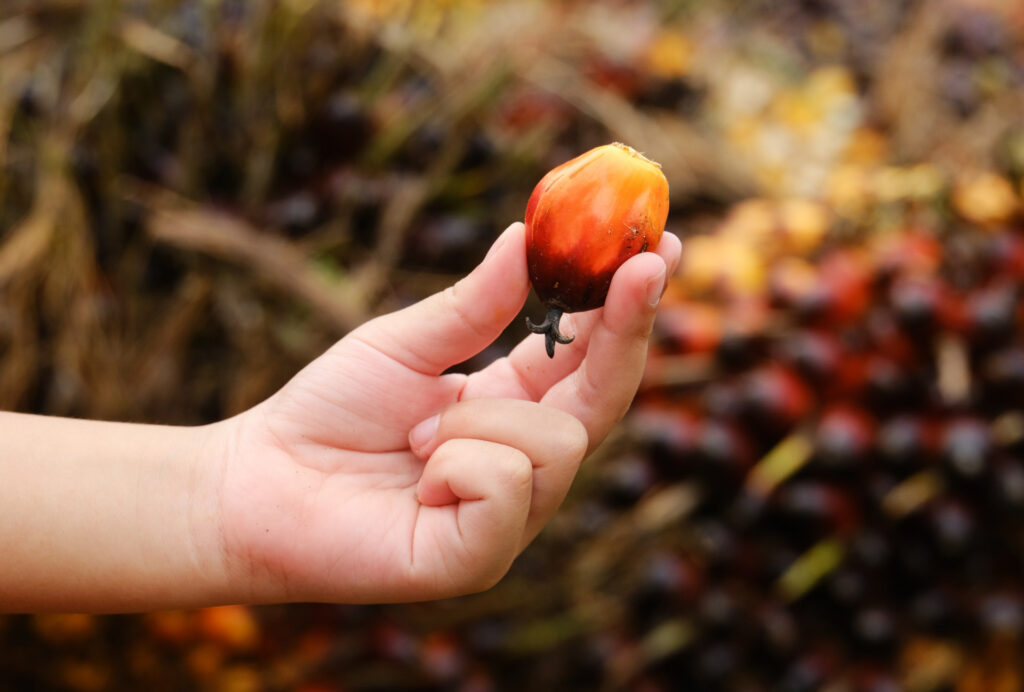Palm Oil

Palm oil, a treasure from West Africa, has traveled a fascinating journey from its origins to becoming one of the most consumed ingredients worldwide. Throughout the 20th century, its production rapidly expanded in tropical regions, with Indonesia and Malaysia leading this transformation. Palm oil is now a staple in our daily lives, found in foods, cosmetics, and biofuels due to its versatility and cost-effectiveness.
However, the price of this growing demand has been high. Irresponsible palm oil production has devastated vital ecosystems, threatening biodiversity and causing significant environmental harm. Tropical forests, once a refuge for countless species, have been converted into vast palm plantations, erasing nature’s richness and the voices of local communities.
Irresponsible palm oil production has left an alarming ecological footprint. The indiscriminate clearing of forests has resulted in the loss of vast habitat areas, threatening the survival of iconic species like orangutans, tigers, and elephants, often considered the “guardians” of their ecosystems.
Beyond biodiversity loss, this disproportionate agricultural growth has led to soil and water pollution due to the intensive use of agrochemicals. These chemicals not only compromise ecosystem health but also endanger local communities that depend on these resources for their livelihoods. The struggle for land and resources has escalated into social conflicts, revealing the harsh reality behind the unchecked consumption of palm oil.
RSPO:
A Beacon of Hope
in Sustainable
Palm Oil Production
In response to the environmental crisis caused by irresponsible production, the Roundtable on Sustainable Palm Oil (RSPO) stands as a beacon of hope. Founded in 2004, this initiative aims to transform the palm oil industry through sustainable and responsible practices.
The RSPO certification sets clear criteria that ensure palm oil production is conducted in an environmentally and socially responsible manner. Deforestation is prohibited, and respect for indigenous communities is promoted, ensuring that palm oil cultivation contributes not only to economic development but also to the preservation of our planet. By choosing RSPO-certified products, consumers can be part of a positive change, supporting production that benefits both people and nature.

Campeño: A Commitment to Positive Change
We are pleased as a company to choose certified palm oil, not only guaranteeing a high-quality product but also supporting responsible farming practices that respect the environment and contribute to the development of local communities. This choice reflects our mission to offer our consumers not only a delicious snack but also the peace of mind knowing they are supporting an ethical and sustainable production model.
At our company, every bite counts, and we are committed to making that bite a vehicle for positive change for the planet. We believe that together, through conscious decisions, we can enjoy a more sustainable future for all.

